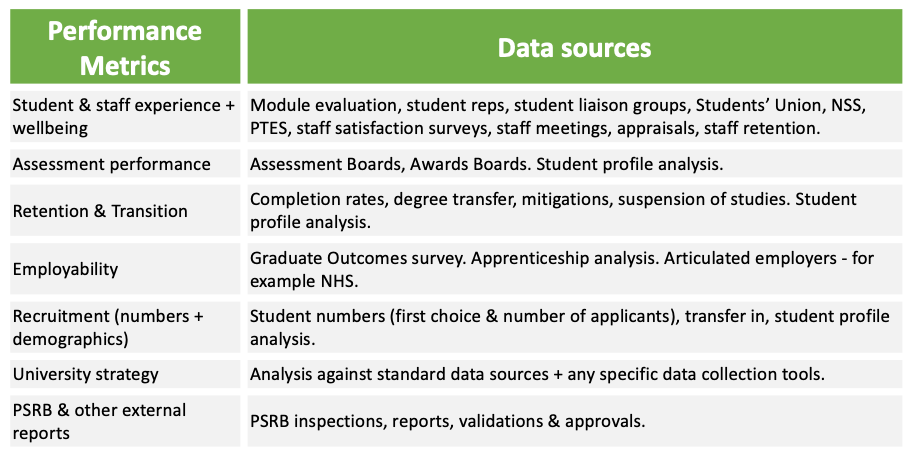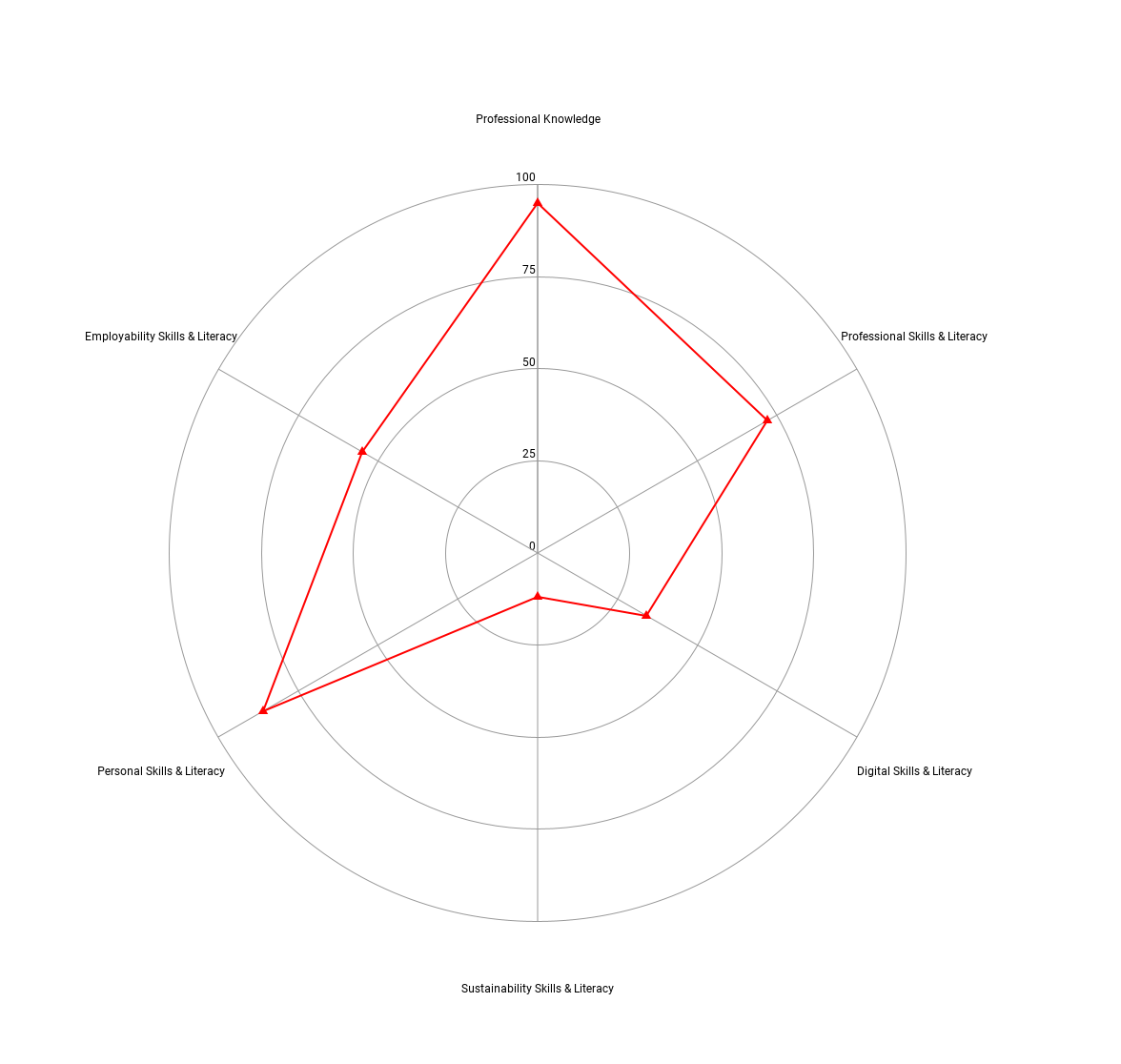Recently, we have been thinking at Higher-ED about what makes a good learning designer within the current HE climate. There are lots of great posts about this, and we have added the links to some of these at the bottom of this blog. Many of these posts focus on the skills and attributes a learning designer needs to have to be successful and deliver impact for the people they work with. Interestingly, we have found less reference to institutional understanding and the bigger picture. There is also less focus on delivering impact against core KPIs and PIs. This is important, and for a curriculum or course to succeed, we should inform the design by other considerations. This includes the alignment of subject learning with the learning and development of other essential knowledge, skills and literacies.
If we were to list the big core performance indicators for a curriculum, module, or course, they would look like this:

It could be suggested that the above are based within the subject of the curriculum, and this is true. But importantly, we need to augment them with additional considerations aligned to the performance of the institution. There has been a lot of great work in this area. Specifically, how to make a curriculum work harder and smarter.
Employability
To give an example of employability. There are many dimensions for employability, and institutions will have their own employability frameworks comprising the skills and attributes felt necessary. A few are shown on the right. Additionally, there will be subject specific skills and knowledge drawn from the knowledge and experiences of the subject matter experts and industry partners.

A learning designer will need to be able to support subject individuals and teams to create content, practices and assessment. These will need to constructively align with the subject matter and these other areas. We can see an example of this in the book chapter by Walker & Kerrigan (Learning Design in the Digital Age, 2015) and the development of digital literacy. In this example, the teaching is adapted to support the development of the subject matter. Simultaneously, it increases the use of technology to support the development of digital literacy. In institutions with a digital literacy framework, the learning designer will need to integrate this into the work they are doing.
What does this mean to be an effective and impactful learning designer? Alongside the personal skills, knowledge and practice already identified by others, they will also need to be able to critically analyse and engage with:
- Performance metrics of any curriculum + course they work on
- Knowledge of the strategies + KPIs and areas of focus for the institution they are working with
- Multiple pedagogical approaches linked to enhancing performance
Whilst sometimes a bit of a cliche and often used in terms of student development, we can refer to this as institutional literacy. In other words, it is a deep understanding of an institution’s strengths, weaknesses, and strategic direction. This understanding, at the module or course level, allows us to integrate these insights into curriculum design.
At Transform-ED our team are experts in learning design, curriculum design, and course development. Combined, we have been doing it for many years. Contact us if you would like to talk about your needs. We are able to offer 1:1 support as well as work with module/course teams and within wider, institutional contexts.
References:
https://myelearningworld.com/qualities-good-instructional-designer
https://www.growthengineering.co.uk/12-must-have-characteristics-for-instructional-designers
https://theelearningcoach.com/elearning_design/isd/10-qualities-of-the-ideal-instructional-designer
https://elearningindustry.com/learning-designer-skills-look-hiring
